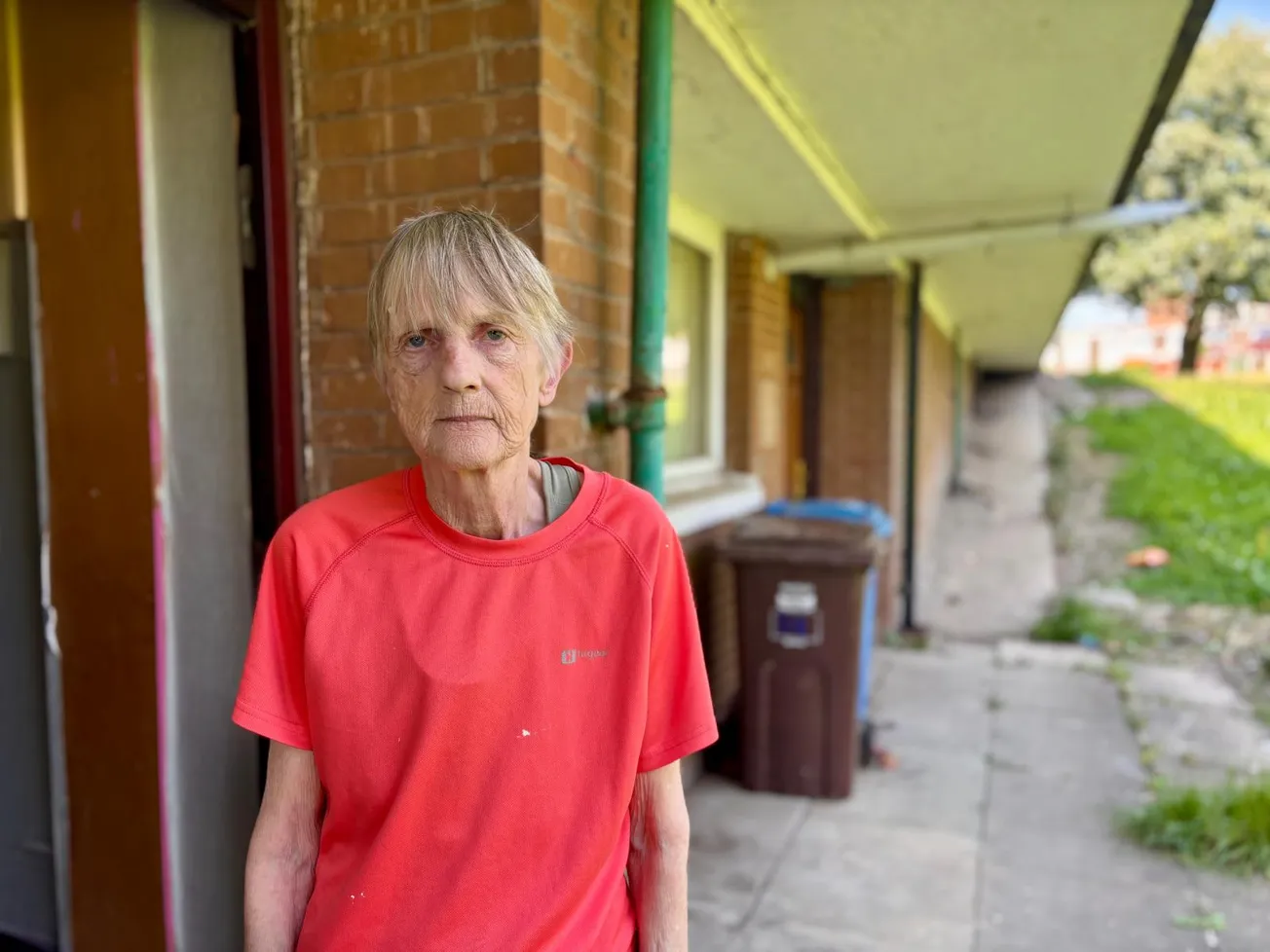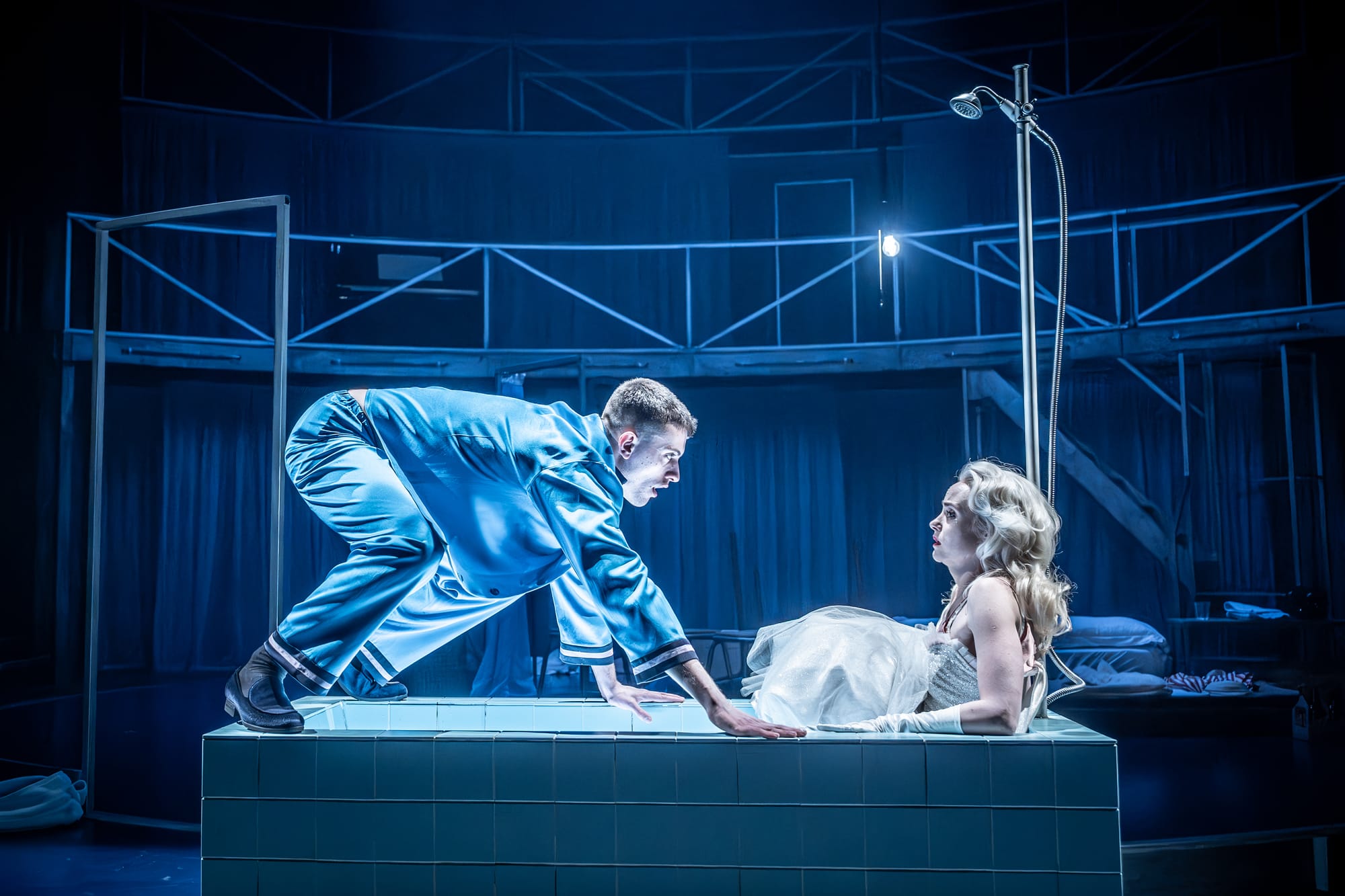A Streetcar Named Desire has always depended on the greatness of its three central performances. This sounds like a risky bet for any production, but audiences have rarely been disappointed. Take, for example, Elia Kazan’s 1951 film adaptation, which famously featured Vivien Leigh as Southern belle Blanche DuBois, with Kim Hunter as her sister Stella and Marlon Brando defining an archetype of machismo as Stella’s husband, Stanley Kowalski. In 2014 at London’s Young Vic, Ben Foster’s stocky Stanley bullied and broke Gillian Anderson’s woozy, girlish Blanche, alongside Vanessa Kirby’s Stella. Most recently, Patsy Ferran was a palpably fragile Blanche to a Stella who appeared in equally fraught denial, played by Anjana Vasan, and an intensely menacing Paul Mescal at London’s Almeida (and later West End).
After inspiring so many electric performances, it hardly feels like a play at all – more like a vehicle for charisma. Perhaps this is what makes Josh Seymour's production of the play at the Crucible feel like a let down. His rendition shows that, without such an intoxicating trio, Streetcar risks running out of road.
Streetcar tells the story of Blanche, an English teacher who comes to visit her sister in New Orleans, claiming to be on leave for ill health. At first, Stella is delighted to see her, but it’s not long before Blanche’s lies strain the household. These lies will stretch from the reason she left her job to a catalogue of collapsed relationships. Meanwhile Blanche’s suitcase spews impossibly glitzy garments, letters and papers as falsehoods and twisted truths spill out of her – it’s the play that makes real the idea of emotional baggage. But it’s baggage that Blanche’s brother-in-law Stanley refuses to accommodate, with increasing hostility.
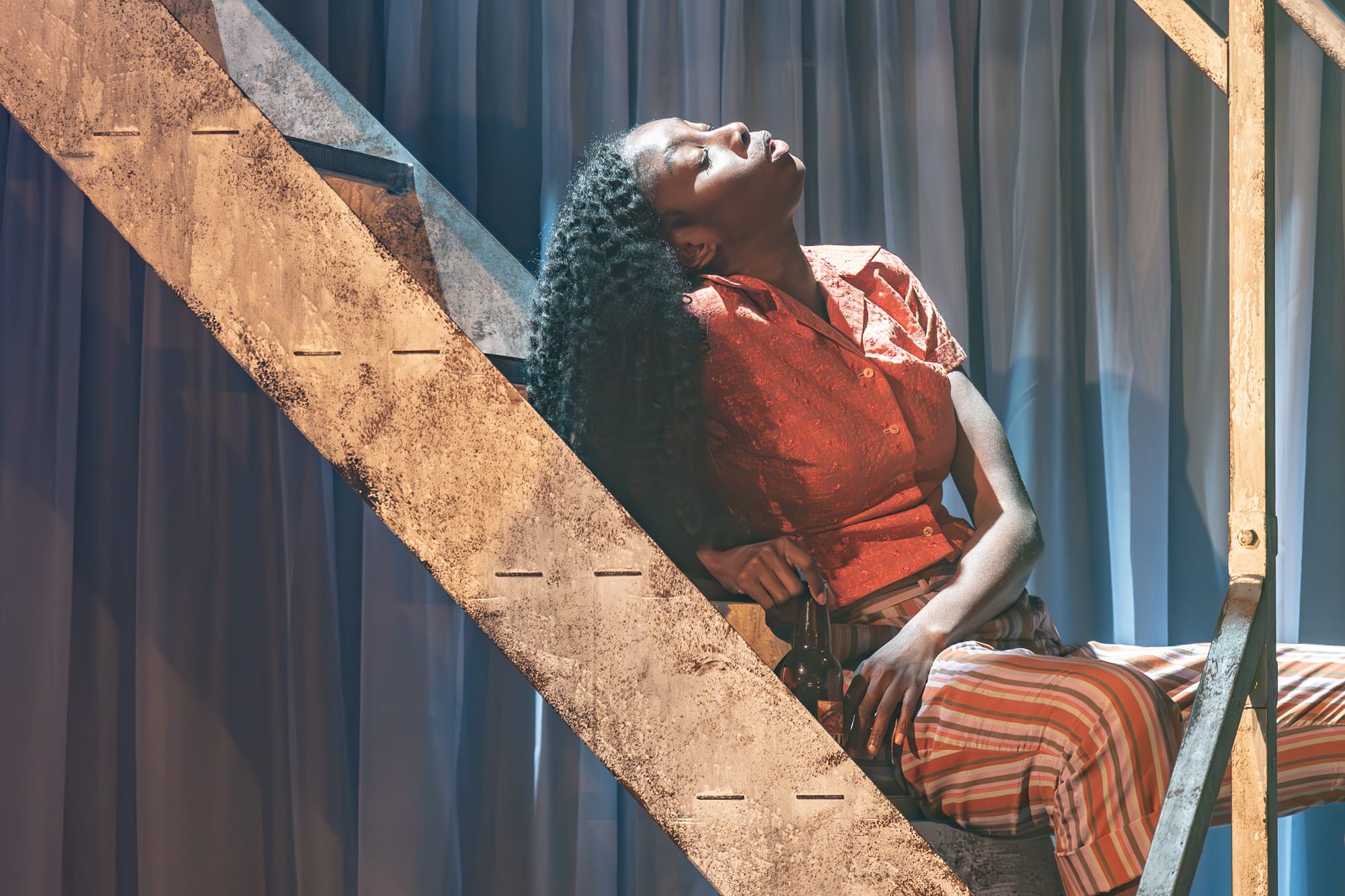
Seymour’s production has the bare doorframes, invisible walls and cramped feel to the apartment first seen in Benedict Andrews’ 2014 Young Vic production. But it’s not identical. In Seymour’s version, a balcony houses neighbouring apartments whose occupants bicker like Stanley, Stella and Blanche, and layers of gauzy curtains hang in front of the back wall. All of this creates a suitably languid atmosphere for a place where Blanche will talk about loving long rainy afternoons.
But don’t let the lyricism deceive you. Beneath Blanche’s flowery lines, the play is powered by a ruthless struggle for power between the central trio – something which means these three performances aren’t just important, they’re the lifeblood of the play.
Stanley makes clear from the start that he perceives Blanche as a threat to his access to the family inheritance through his wife – and therefore a threat to his masculinity. As he lashes out, Stella is caught in the crossfire between deciding which future is safer: one built on the fallacy and hedonism of her sister or the aggression and control of her husband. It can be easy to sideline Stella as collateral damage, but without a close sisterly relationship, the tug of war needed to drive the play is absent. And while Stella may be less vivid than the other two characters to the audience, that isn’t how Blanche and Stanley relate to her: after all, she’s Blanche’s lifeline from being jettisoned into total delusion. Blanche needs to be invested in her sister and therefore entirely unable to compute her sister standing by Stanley and their marriage in all its ugliness and imperfection.
Jake Dunn’s Stanley stops this marriage from appearing nearly ugly enough, however. His performance could hardly be further from his character’s descriptions. Dunn renders the hollering and howling on the page as tepid whimpers. Rather than harbouring an inner thug or brute, he is quiet, weak and unintimidating. This portrayal of Stanley builds on the possibility that Blanche is being excessively paranoid when she accuses him of being her “executioner” who will “destroy” her. But it also completely defangs the drama. Where is the ferocity of a man Blanche calls “bestial”, “animal” and “subhuman”?
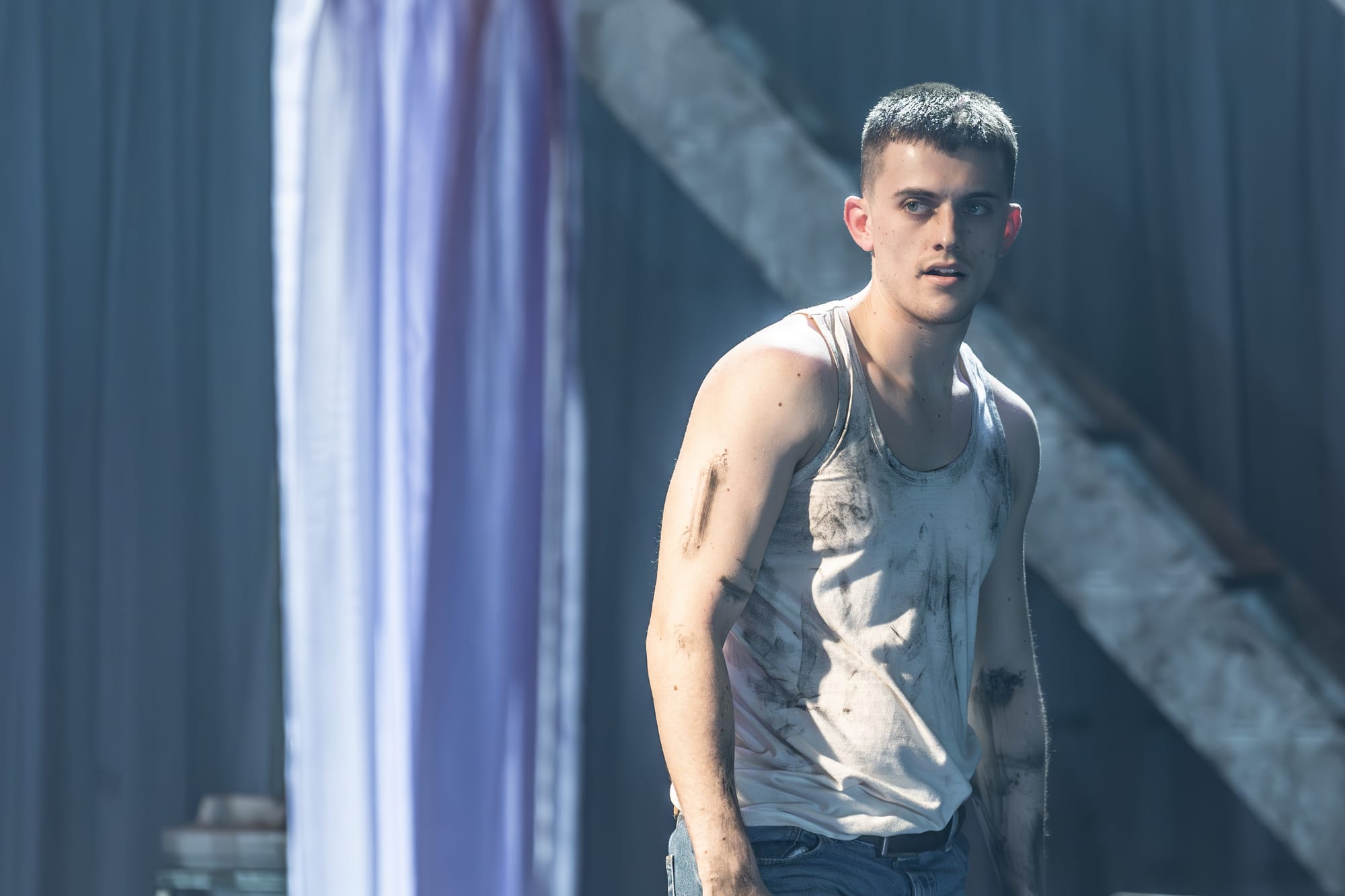
He enters with his hand fisted inside his shirt. When his hand is out of it, he wildly overgesticulates, endlessly thrusting his arms as if to compensate for his lack of driving force. He swings around the apartment like the ape Blanche calls him or bends over furniture in an attempt to illustrate a looming presence. To create a convincing clamour, he has to hurl himself and props around: plates clang and crash on the floor like cymbals, and much of the first half is punctuated by the thud and slam of her trunk. All of his calculated behaviour to oust Blanche seems done on a whim – he declares “I am the king around here”, but to us, he seems at most a boisterous court jester. Even when he deliberately disobeys his wife’s wishes by revealing a secret she has to Blanche, there’s no sense of sinister taunting in the revelation. The production has to literally cover him in oil and grease to rough him up in one scene.
With Dunn too busy whirring around to allow any desire and lust to simmer between Stanley and Blanche, the lights might crackle but there’s barely any powder-keg tension. The dangling canopy of bulbs works better, however, suggesting lights climbing into the sky like a vision from Blanche’s imagination. These same lights grow colder and more sterile towards the end as things get bleaker for Blanche. But elsewhere lighting is too literal. Blanche frequently refers to light – both attracted to its warmth and fearful of its exposure. So it seems unnecessary for one moment to flood her with stage spotlights at the pull of a cord, in case we might not otherwise have got the point that she’s been finally exposed to its “merciless glare”.
Joanna Vanderham’s performance as the Southern belle suggests that Blanche takes out her exasperation with her own life on her sister. She grabs Stella’s shoulders as though confronting her reflection in a mirror, frustrated that she doesn’t share her quixotic romanticism and desire for a better life. She’s often dressed like a ballerina on a music box, while languorously delivering lines like “when an hour isn't just an hour, but a little piece of eternity dropped into your hands”. Her desperation manifests as a fickleness about knowing what she wants and why she wants it – she swaps out stories and entertains the idea of different male partners like trying on one of her outfits, wrapping a feather boa around herself and seeing if she likes the feel of it. But she often seems remarkably composed, not quite brittle or jittery enough.
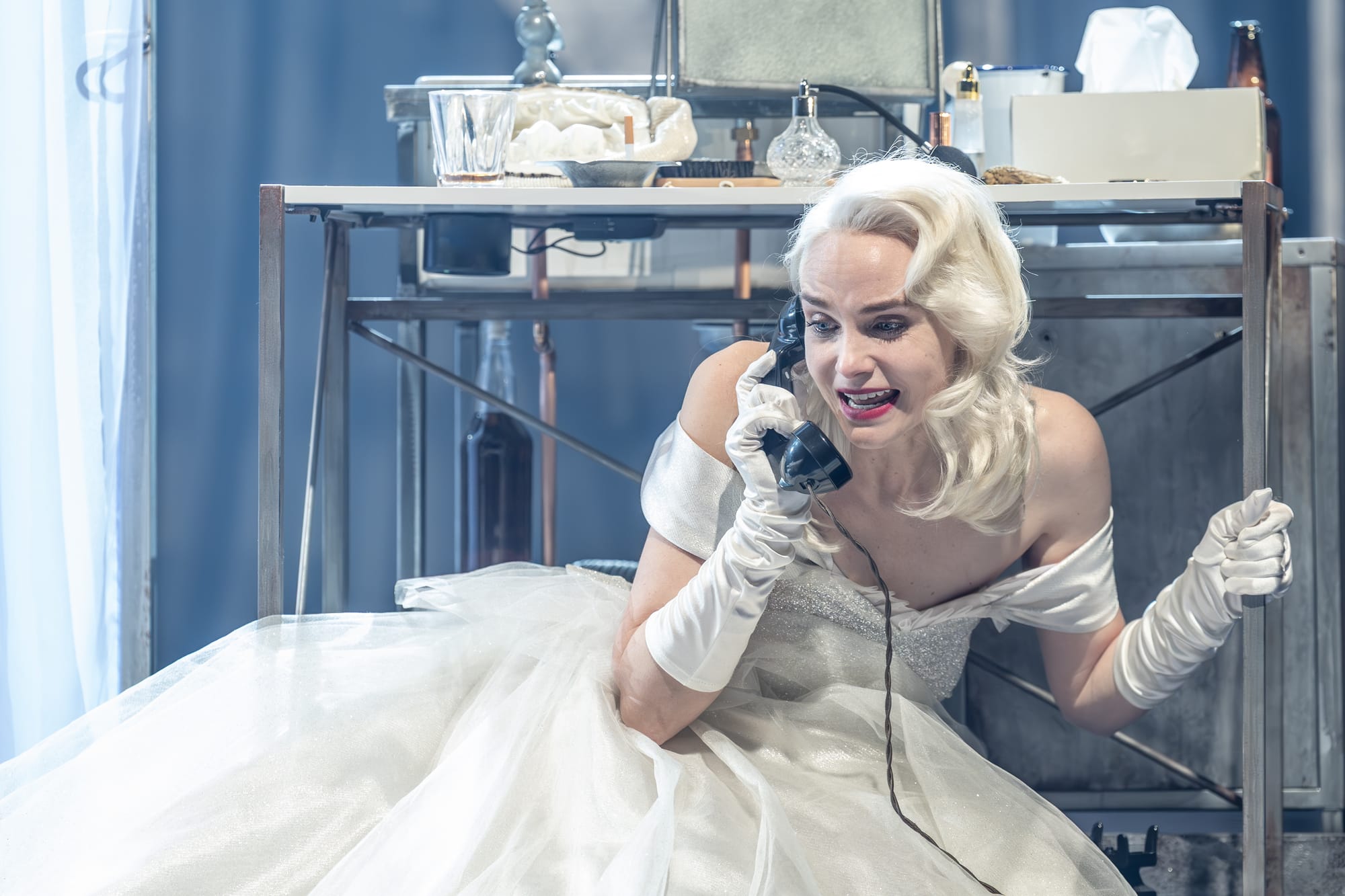
Amara Okereke, meanwhile, never really finds a way into Stella. Which leaves us with no way into understanding all her complicated choices, not least returning to Stanley after he hits her. It also limits our ability to identify with her in the story – she, like us, feeling torn between wanting to protect and distance herself from Blanche.
As Blanche spirals, so does the revolving stage. But where Blanche’s disintegration has been incremental in other actors’ performances, Vanderham makes a clear, stark shift following a particularly traumatic scene with Stanley. Her register becomes flat, her face fixed in a blank look. The effect is her being shattered by a single act of violence, rather than the cumulative force of a woman succumbing to the weight of all her lies and their scrutiny. There’s an impact in seeing Vanderham so convincingly shellshocked by being confronted with the horrors of which the real world is capable. The scales seem to fall from her eyes and she’s left with nothing. However, the event should spur on her retreat into the all-consuming fantasy that sees her institutionalised. Instead, by dropping the affectations and lilting voice, she seems more real than she’s ever been.
This performance runs counter to playwright Tennessee Williams’ predilection for the slow burn. He avoids sudden escalations or sheer drops into catastrophe, shifting gears gradually, so the conflicts and crashes take place in agonising slow motion. By contrast, Vanderham’s rendition of Blanche goes from getting by to being entirely broken in a single scene change.

And it’s not just the cast who drive the play into jarring directions. Seymour’s production tips into overstylisation – not for the first time. His production of Spend Spend Spend at Manchester’s Royal Exchange in November last year also displayed a tendency to overstate. A freeze frame would suspend the aftermath of a man striking a woman’s face, for instance. Here, he directs an expressionistic sequence for a moment of violence where the tearing of a sheet dramatically reverberates across the set in a way that feels appropriately bracing, but is such a highly theatrical sequence that it steals our focus from the character. Throughout the show, sultry jazz and tinkling piano casts it all in dream. But anyone unsure whether a line is significant or symbolic only has to look out for the piano halting and the lights snapping at the mention of loss and loneliness.
Just as Dunn’s Stanley endlessly strips off, Seymour’s production feels compelled to constantly bare the play’s chest, to make all subtext naked. The most extreme intervention sees an actor intermittently float around as the ghost of Blanche’s lover whose death catalysed her descent into despair. As if that hadn’t made her emotional crisis obvious enough, this ghost even sings “I’m afraid this masquerade is over” at her from David Porter’s song. And when he’s not doing that, he’s pressing against her through a curtain, embracing her in a bathtub or kneeling at her feet like a dog. But this is a play about peeling away illusion, not piling it on. Of all the mistakes in Seymour’s production, the one it suffers from most is the same one that brings down Blanche: it leans too heavily into her lies and tries too desperately to make them real.

Comments
How to comment:
If you are already a member,
click here to sign in
and leave a comment.
If you aren't a member,
sign up here
to be able to leave a comment.
To add your photo, click here to create a profile on Gravatar.






